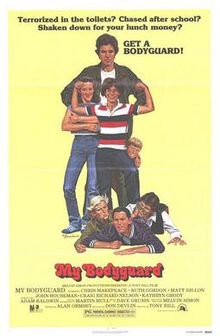Bullies
Listen to the Recess! Clip
| Author | John Cech |
| Air Date | 9/14/1999 |

Bullies Transcript
On my way home from school every day in third grade, Paulie Sullivan beat me up. I fought him, but always lost. He was bigger than me — a burly fifth grader. I tried coming home a different way, but within a day or two he’d catch up with me again. I rode my bike, he bent the front wheel. My mother talked to his mother, but she denied that her son would ever do such a thing, and how dare my mother accuse him of it. My father talked to his father, and he said a kid needed to learn take care of himself and not go whining to his parents. My father taught me how to throw jabs and bolo punches — just like Kid Gavalan, one of the famous prize fighters of the time. It didn’t matter. Paulie held me at arm’s length and all I could do was pummel the air. The only thing that saved me from Paulie was that the teachers were as tired of him as I was and they shipped off to middle school the next year. When I met up with him later, I was hanging around with a group of friends. We looked out for one another. Paulie figured it wasn’t worth his trouble and left me alone.
Not much has changed since then. When I visit schools today, the one thing, children tell me, that bothers almost all of them is bullying and the physical violence, threatened or acted out, that comes with it. So what’s a kid to do? Hire another kid who’s bigger and tougher than the bully to protect you? That’s the premise of a pretty good movie for teenagers, “My Bodyguard,” even though it is pretty unrealistic. Learn some martial arts and become the block’s Karate Kid? Not a bad idea, except that you need a sensei like Mr. Myagi to cover your back while you’re learning. Trick the bully? Ah, that would be Marty McFly’s department, but it requires a very nimble mind, a lot of luck, and a bully as dumb as Buzz. A growing number of books and learning videos in recent years have addressed the problem of bullies — how to spot them, how to understand them, how to react to them. We know that most bullies are passing on what has been done to them; we know that they tend to pick on vulnerable, isolated children who won’t fight back; we know that a school or community must be willing to acknowledge and concentrate on the problem if it ever hopes to reach any viable solutions, and that it must do this vigilantly year in and year out. The most successful school programs have recognized that you can not simply punish and isolate the bully, much as we might like to do just that. (I know I wouldn’t have minded if Paulie spent some time in solitary detention.) Instead, what really works is if the bully is required to rejoin the community, and to put something positive back in place of the damage he has done. In some school systems, the bully is required to spend carefully supervised time tutoring and helping younger children — the kinds of kids he probably picked on. I like the symmetry and justice of that. It may not satisfy the urge for revenge, but it teaches lessons that a bolo punch never could: it re-educates the heart and soul.